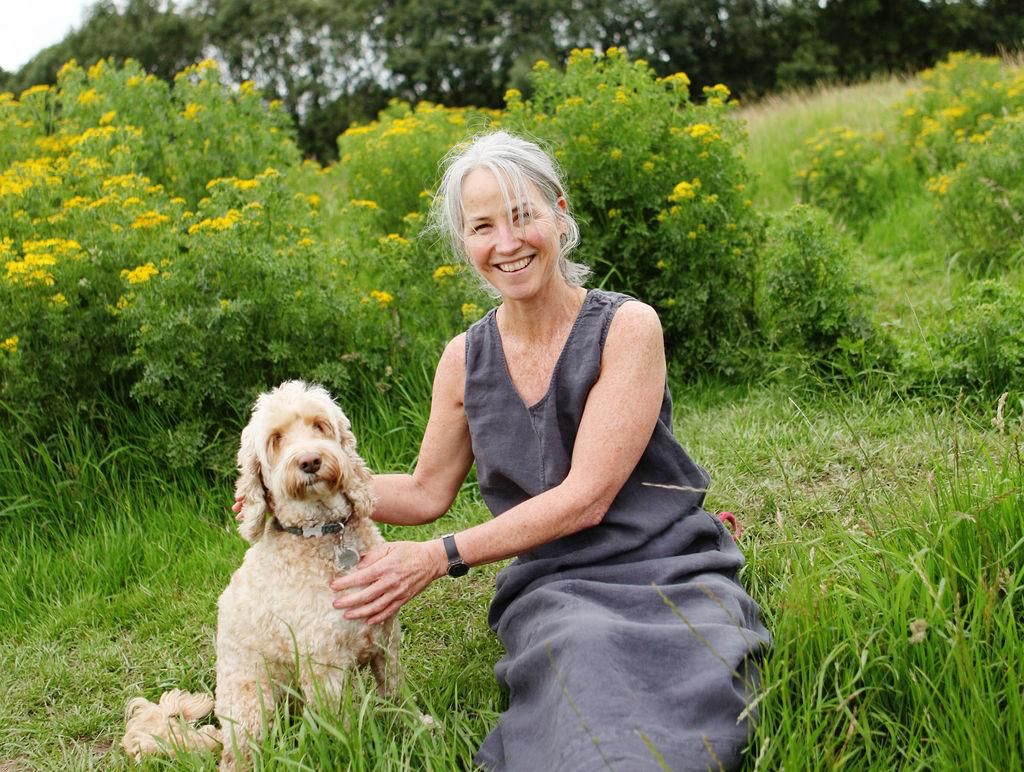‘Crippling menopause symptoms drove me to drink three bottles of wine a day’
Lindsey Beveridge tells Maya Oppenheim how agonising symptoms exacerbated her addiction as study finds women are spending more on alcohol than food to cope


Your support helps us to tell the story
This election is still a dead heat, according to most polls. In a fight with such wafer-thin margins, we need reporters on the ground talking to the people Trump and Harris are courting. Your support allows us to keep sending journalists to the story.
The Independent is trusted by 27 million Americans from across the entire political spectrum every month. Unlike many other quality news outlets, we choose not to lock you out of our reporting and analysis with paywalls. But quality journalism must still be paid for.
Help us keep bring these critical stories to light. Your support makes all the difference.
Debilitating menopause symptoms drove Lindsey Beveridge to the edge, fuelling an alcohol addiction that saw her drinking three bottles of wine a day and spending up to £250 a week on her habit.
The 55-year-old from Manchester weighed just seven and a half stones at the height of her alcoholism in 2015 and feared her addiction was so bad her daughter would one day discover her dead.
While her addiction began in her twenties, anxiety, insomnia and low mood brought on by the perimenopause – the period leading up to menopause – while in her mid-forties, saw her up her drinking in a bid to alleviate symptoms she initially put down to deteriorating mental health.
She said: “I was very anxious – I was not able to drive my car on motorways. I had insomnia, very low mood, fatigue, and then I also had very painful joints – I thought I had an autoimmune disease. It feels like the pain is inside your bones.
“I started increasing the amount I was drinking to help me sleep and to help manage the pain and the anxiety. I was drinking three bottles of wine a day. I became physically addicted towards the end so I would have to start drinking in the morning so I could function. I thought I was going to die. I felt physically and mentally terrible.”
And she’s not alone. New research has found women in the UK are forking out more money on alcohol per week than on food to manage menopause symptoms.
The study, by menopause clinic Newson Health Group, found one in four menopausal women is spending up to £50 a week on alcohol.
Researchers, who polled nearly 1,200 women going through perimenopause and menopause, discovered women are spending almost £3,000 on booze and over-the-counter medication per year to make menopausal symptoms more bearable.
This is considerably more than the annual amount of money spent on groceries for an average adult woman which is just over £1,600, according to NimbleFins analysis of data from the Office for National Statistics.
Ms Beveridge started concealing her alcoholism from everyone around her and was “very much a functioning alcoholic”, holding down her job running a training business from home.
But her daughter, who was living with her at the time, was aware of her excessive drinking and she was ultimately the reason she sought to get help.
Ms Beveridge recalled: “It was a very frightening time for her. I’d always had an alcohol problem but just not as bad as that. Perimenopause triggered the full-blown physical addiction.
“There were several moments where I realised I had to stop. I realised I would die quite soon if I didn’t stop soon. I’d stopped eating. I knew I had to do something about it otherwise my daughter would find me dead.”
Ms Beveridge, who has retrained as a nutritional therapist since going sober, said she decided to stop drinking in 2015 – explaining she is feeling “well, healthy and strong mentally” now.
She said she felt like there was a lack of “information” as well as “understanding” about menopause when she started experiencing symptoms.
“It’s a lot different now – there is more information, but still not enough. There are such a wide variety of symptoms,” Ms Beveridge reflected.
Menopause symptoms range from heart palpitations to hot flushes, vaginal pain, anxiety and depression, night sweats, insomnia, headaches, a reduced sex drive, recurrent urinary tract infections – as well as mood changes, difficulty concentrating and issues with memory.
The researchers, whose findings are released on World Menopause Day, found a third of those polled said they drink more alcohol since they became perimenopausal or menopausal – with one in eight women routinely drinking more than the maximum 14 units a week advised by the NHS.
The study discovered an inability to access proper treatment for menopause as well as a desire to cope with symptoms were the chief reasons pushing women to drink more alcohol.
Dr Louise Newson, a GP and menopause specialist, said: “Sadly I’m not surprised by our survey findings. I speak to many of my women who are struggling with issues around alcohol and other addictions.
“The changes experienced in the perimenopause and menopause can cause women a lot of discomfort and stress. As a result, they may turn to painkillers or alcohol to relieve these symptoms or, as our study shows, be more susceptible to substance abuse.”
Her comments come as MPs warned women should be getting “menopause checks” at the age of 40 – with experts drawing attention to the risk menopausal women can develop issues with their heart.
The Menopause All Party Parliamentary Group (APPG) demanded menopause be incorporated into the NHS’s midlife MOT test – a routine check-up offered every half a decade to those aged between 40 to 74.
Dr Judith Mohring, consultant psychiatrist, added: “A lot of women find themselves depressed, anxious, and with variable symptoms that are often misdiagnosed as anything other than menopause. Coupled with the demands of mid-life, numerous women I see end up turning to alcohol as a way of coping.”
Subscribe to Independent Premium to bookmark this article
Want to bookmark your favourite articles and stories to read or reference later? Start your Independent Premium subscription today.








Join our commenting forum
Join thought-provoking conversations, follow other Independent readers and see their replies
Comments